Whether you have been podcasting for months or are just now gearing up to release your first episode, it’s clear that a podcast has many moving parts. Unless you are backed by a company, you essentially become a one-person band juggling all of the elements on your own. With that in mind, in this post, we’re sharing how to manage your podcast workflow so you can save time and energy while still getting all the things done.
An Overview of the Podcast Workflow
Before we get into the nitty-gritty of how to manage your podcast workflow, let’s take a quick look at an example of what a podcasting workflow might look like:
Podcast episode ideation phase → Decide on episode subject and search for guest possibilities → Schedule interviews → Write questions and/or outline of the episode → Record the episode → Edit the show → Load episode to your podcast host to share with iTunes/Stitcher/Google Play etc …→ Create show notes for your website → Begin promoting the show via social media, your email list, on your website, etc… → Follow up with guest(s) about the show.
Your podcast workflow may look a little different, but hopefully, this gives you an idea of just how many pieces you’ll have to manage for your show.
Why Managing Your Workflow Matters
Producing a podcast can get a little overwhelming. For most hosts, their podcast is an extra activity they do – it’s not their full-time job. As a result, when the tasks become too stressful, some will give up their shows entirely. We don’t want to see that happen to you. To make things easier on yourself, having a system in place helps you to better manage your time so that you can keep the love for your show alive.
Now that you know what it takes to create an episode from start to finish, how can you organize your workflow? We recommend using a tool such as Trello, Asana, Monday.com or some other similar software to keep track of your tasks. For our example, we’re using Trello, but there are several options for workflow software on the market.
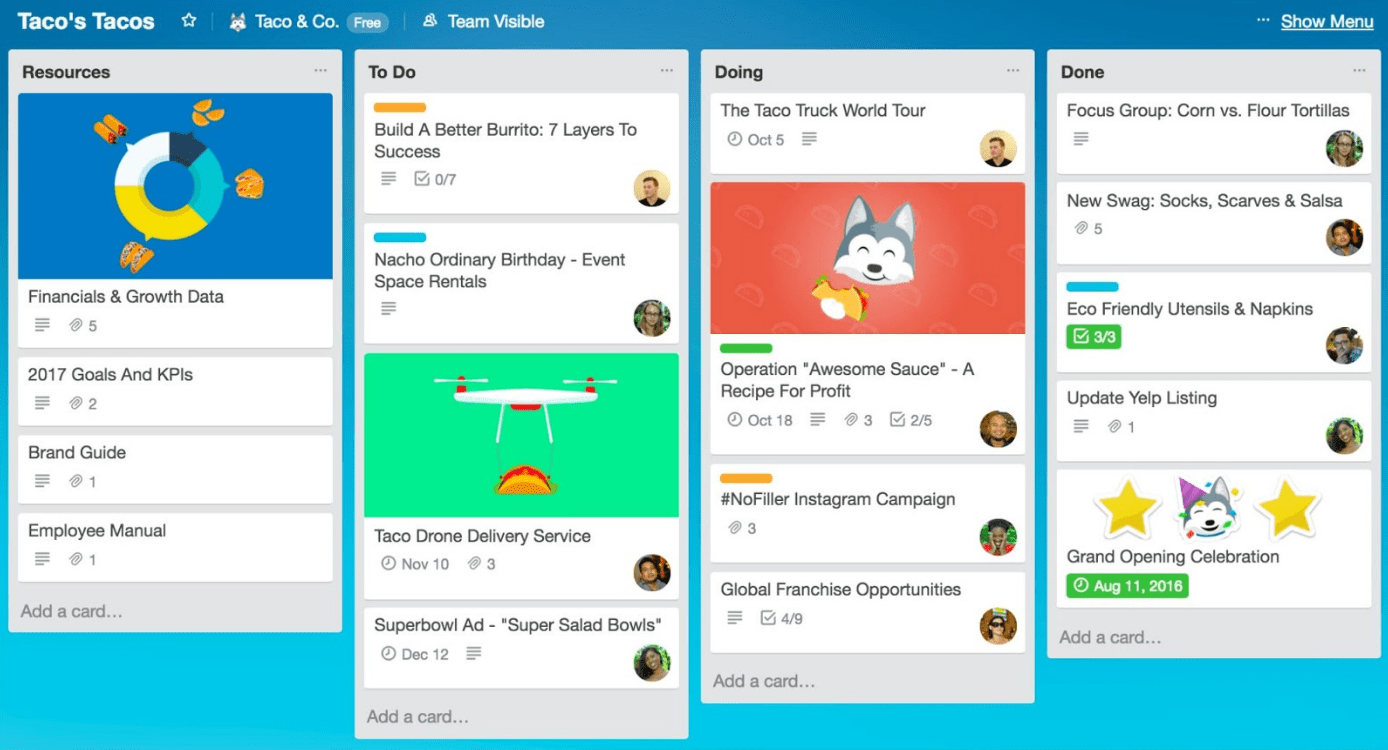
Let’s say you have a podcast about running a hair salon. We’ll use the fictitious show “The Mane Report” for our sample Trello board below. You can create a Trello board for free to help you manage all the pieces of your show.
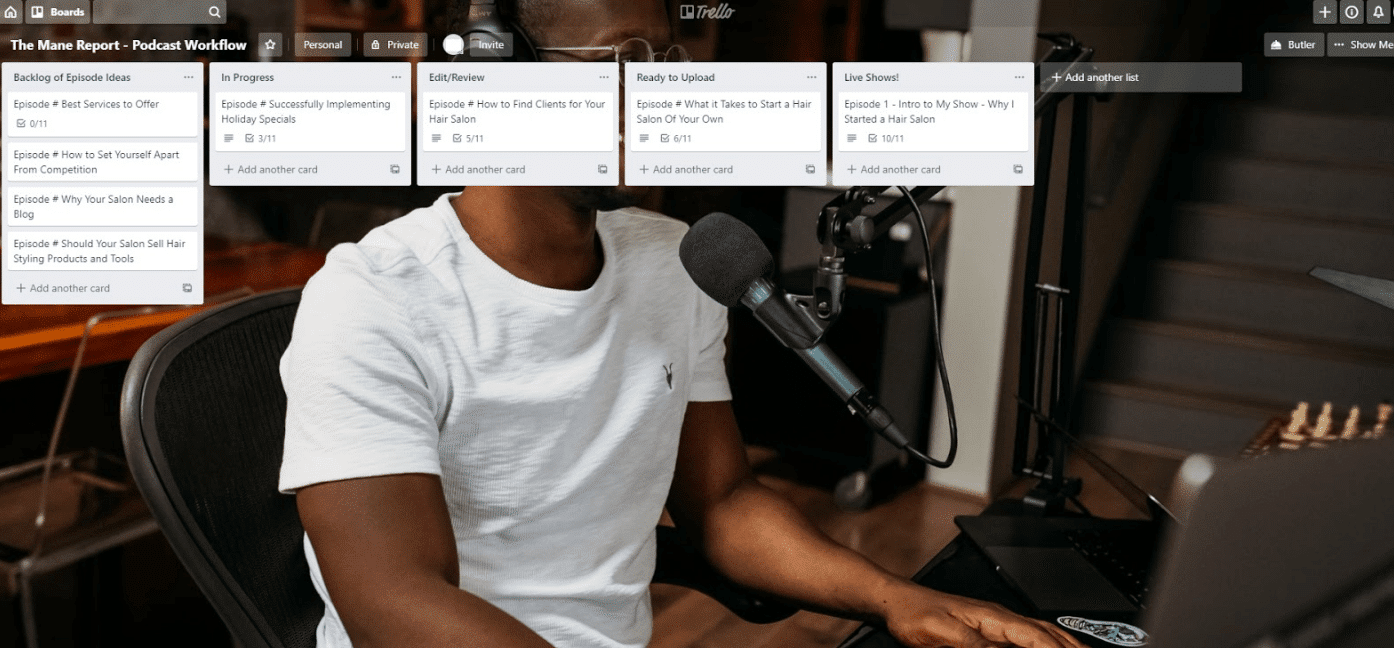
In this case, we’ve set up a simple layout for our workflow with “Lists” for our backlog of “The Mane Report” episode ideas, episodes that are in progress, the edit/review phase, episodes that are ready to upload, and live shows.
Once you have developed a board for the overview of your workflow, you can create a separate card complete with a checklist for every episode so you don’t have to worry about whether or not you’ve accomplished all the tasks necessary for each individual episode.
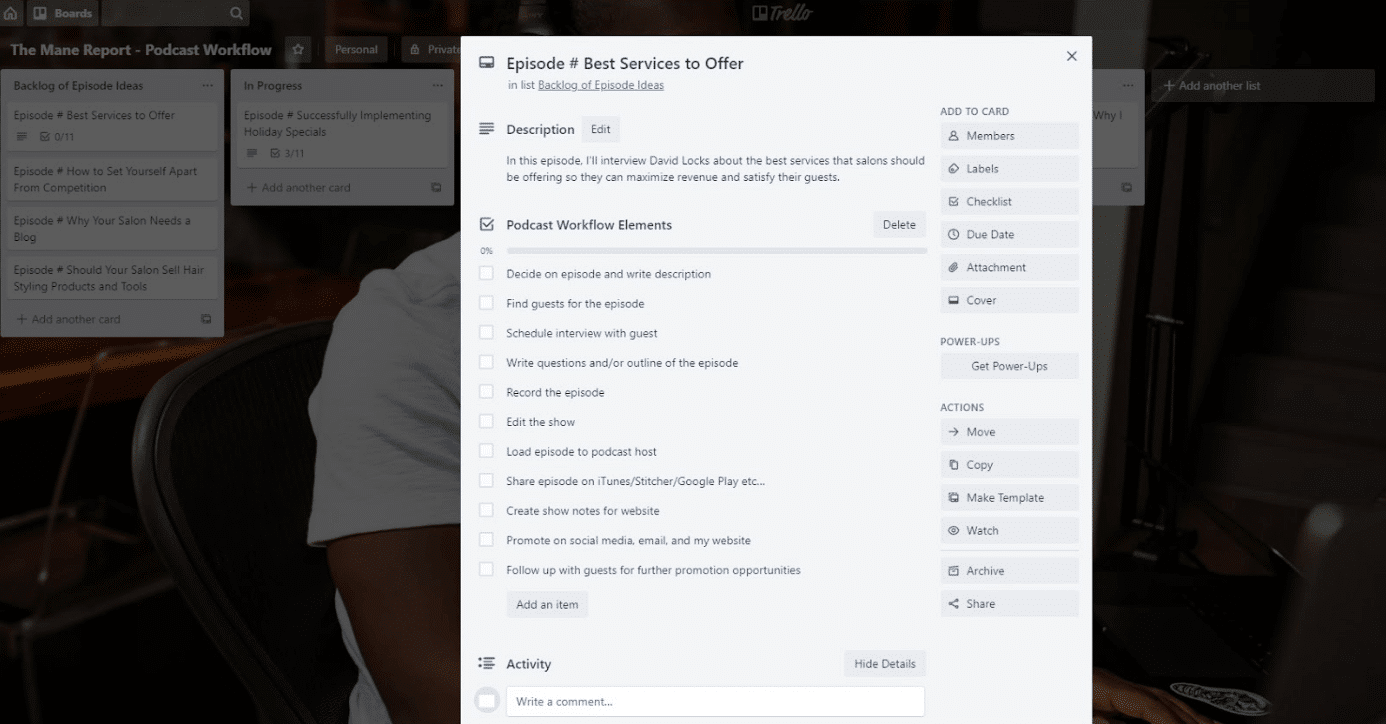
In this example, we’ve added a checklist that includes each of the tasks mentioned above in our sample workflow. As items are completed, you can simply check them off like this:
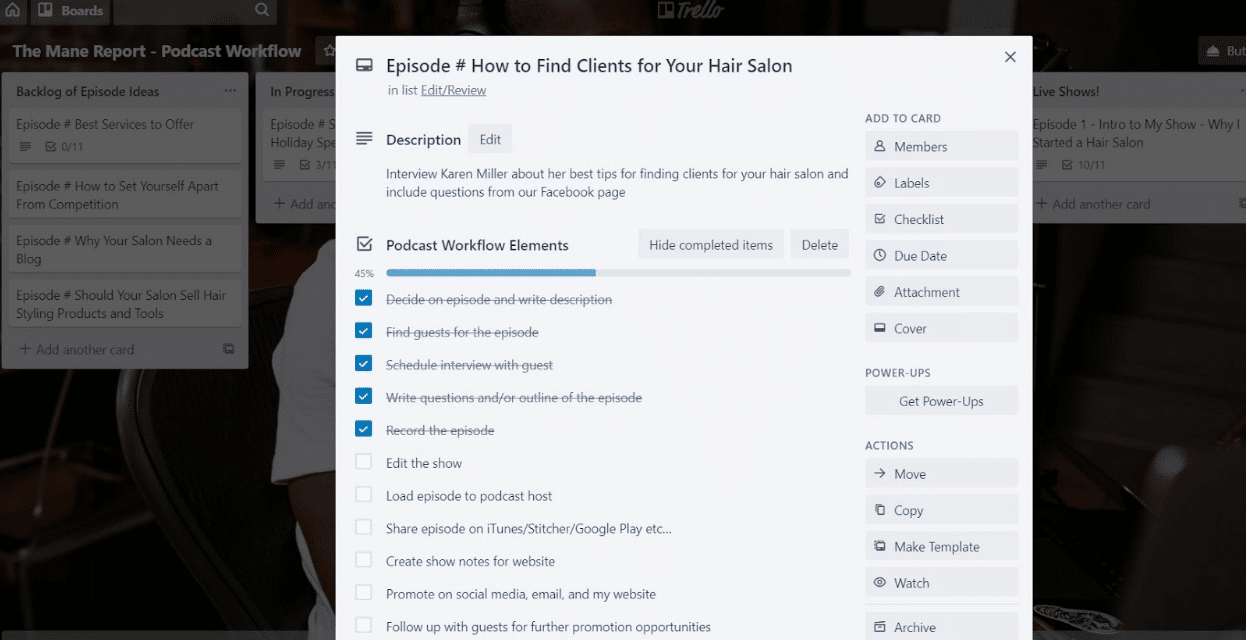
Batching and Scaling Your Workflow
Perhaps the greatest thing about creating a workflow system using software such as Trello, is that eventually, you can start scaling your process. After you have the layout of everything for your show, you can begin assessing which tasks can be automated and scheduled.
You can also batch your tasks and check off items on each of your episode checklists as you go along so you don’t have to worry if you missed anything for a particular episode.
Check out our post Level Up Your Podcast With Scheduling, to learn more about batching tasks and scheduling episodes to maximize productivity.
Nail Your Workflow and Delegate As Soon As You Can
Though you have to be the voice of your show, you don’t necessarily have to be the one physically doing everything on your to-do list for all of your episodes. At some point, you might want to delegate the tasks that don’t require you to be present. For example, you can outsource editing the show, loading it to your podcast host, creating your show notes, and even your social media management.
Then again, you don’t want to scale too quickly. First, nail down your workflow, and assess where the bottlenecks are in terms of your productivity. Determine what tasks you enjoy the most, and which ones stress you out.
From there, create a list of tasks you would like to delegate. Even before you start monetizing your podcast, you can begin researching how to best outsource the things you don’t want to do, or that can be accomplished by someone else faster than you can do them. Besides, the less you have on your own plate, the more time you will have for the creative aspects, and for working on other facets of your show that you do enjoy.
Where to Find Help for Your Podcast Workflow
1. Software
In addition to workflow software, there’s also software for things like scheduling, social media updates, email sequences, and more that you should consider for maximizing efficiency.
- Scheduling apps for interviews: Acuity, Calendly, Square Appointments, ScheduleOnce
- Social media marketing software: Hootsuite, MeetEdgar, Sociamonials, Buffer
- Email marketing software: Mailchimp, ConvertKit, Constant Contact, Keap
We also recommend reading our post “What Is the Best Podcast Editing Software?”
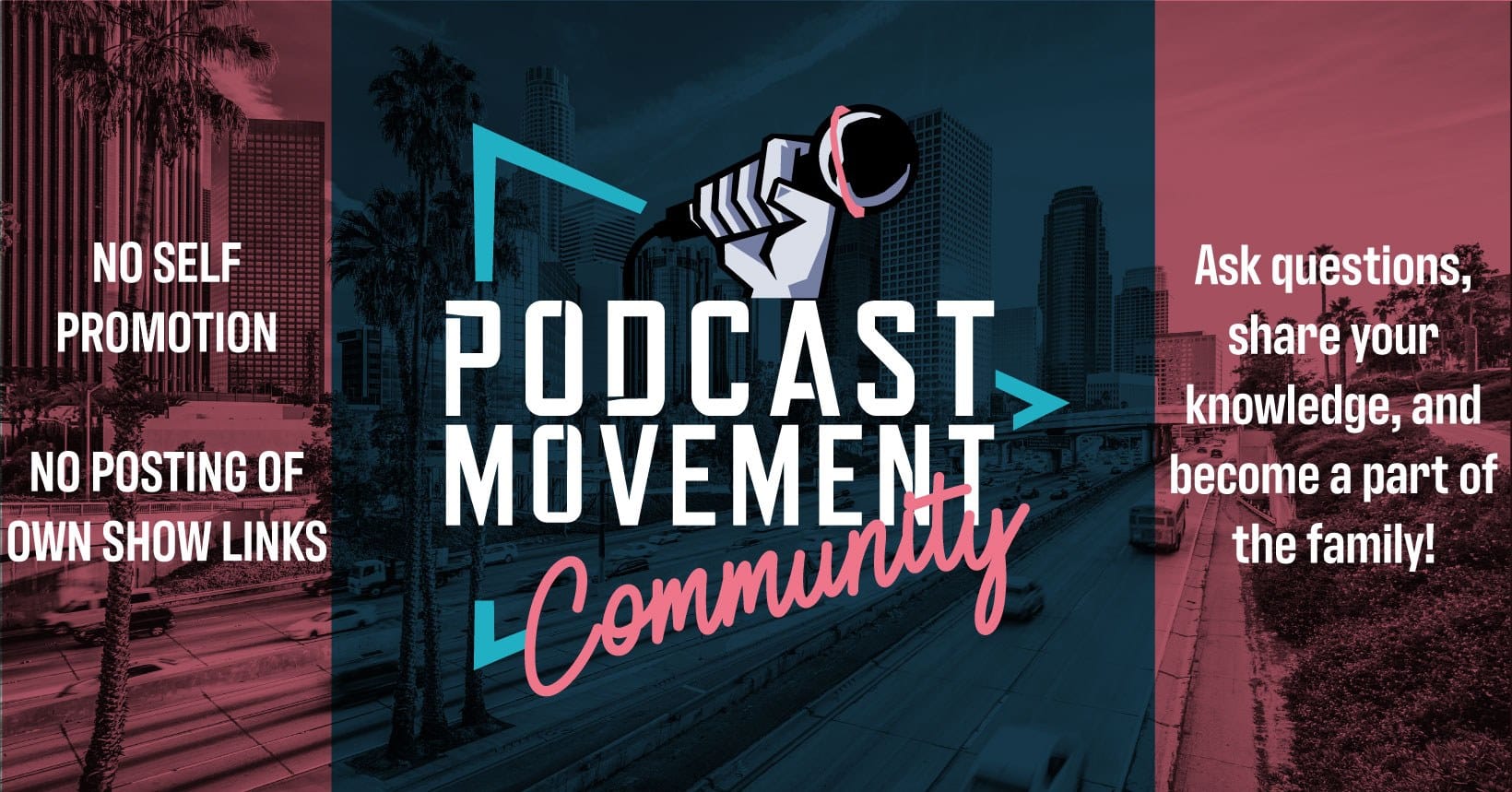
2. Other podcasters
This is truly the most exciting time to start a podcast. Thanks to groups on LinkedIn and Facebook, it’s easier than ever to find fellow podcasters to share ideas and network with.
For example, Podcast Movement has a group on Facebook with over 65K members that you can check out.
They could not only be helpful for coming up with show ideas, but also to get ideas on how to improve your show, build and audience and how to manage your podcast workflow.
For example, let’s say you love editing, but don’t like writing your social media status updates. Suppose you find a fellow podcaster who detests editing and loves social media. There could be an opportunity there to swap tasks and help one another in squashing your to-do lists.
Making friends with other podcasters could open up opportunities for collaborations and partnerships as well. And let’s be honest, more friends never hurt anybody.
3. Local colleges
College students need experience with a wide variety of tasks to prepare themselves for their classes and ultimately the workforce. Reach out to professors in communications and broadcasting to see if their students have any interest in working with you on your podcast. Some students may even be able to get class credit for helping you.
4. Online
Though you may not have the budget for it just yet, there may come a time in the future where you can afford to hire paid help for your podcast. Websites like Upwork, Fiverr, and Freelancer may be the first places to look, but don’t forget about using your social media pages, email, and your podcast itself to put the word out that you are looking for help.

Don’t Let Your Workflow Overrun You
The best tip we can offer for how to manage your podcast workflow, is to find the process that suits your needs and schedule. It might be messy at first, but that’s okay. You might even realize you prefer to release new episodes seasonally rather than weekly. That’s okay too. Your show, your rules!
Just don’t forget why you started your podcast in the first place. You have a message the world needs to hear, and with a little planning, and perhaps some help, we hope that you can find a workflow system that runs smoothly.




